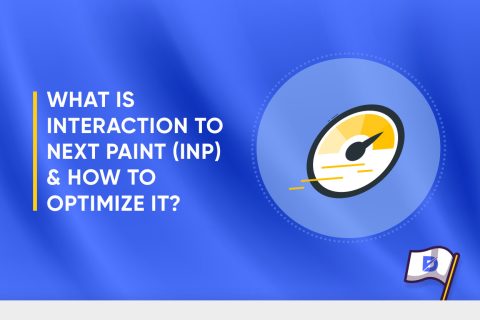For many, SEO is a book with seven seals, leaving room for many interpretations and myths. Now an ex-Google employee has put an end to some of the SEO myths. Search engine optimization works by adapting algorithms and is constantly changing thanks to new techniques. The result is always new myths, half-knowledge, tips, tricks, and best practices. On Search Engine Land, ex-Google employee Kaspar Szymanski has now partially clarified and eliminated some of the SEO myths.
Let’s together check these SEO myths and learn the truth! Throughout the article, we will provide you with correct information regarding the SEO process.

SEO Myths
In this section, we will examine the SEO myths and solve the misunderstandings about the SEO process. It is important to learn what is right or wrong. So that you can work your SEO more accurately for your goals, let’s check some myths below.
SEO Is a Fair Competition
To anticipate: According to Szymanski, SEO is not a fair competition. This has not been the case for a long time and will never be the same again. Each website ranks differently through different on and off-page signals. This corresponds to a market in which companies fight for supremacy with various offers. Optimizations that boost a website’s ranking do not lead to better rankings for every other website.
Szymanski explains that Google grants new domains a short-term advantage in the form of the “Google honeymoon period.” During this time, a new website initially had an excellent ranking. After this phase, however, Google ranks them accordingly or rates them correctly in the search results.
SEO Is a One-Time Effort
According to Szymanski, SEO efforts should lose their effect over time as an investment. For example, when best practices are outdated and obsolete. Therefore, one must understand SEO as a constant effort as a permanent project. In particular, planned, periodic spurts must be put down in more lucrative niches. You should continuously monitor and optimize factors related to the UX, such as displaying the snippets and page performance. On the other hand, you can make other factors like backlink management a part of the annual on and off-page check.
Having an XML Sitemap Directly Affects SEO
XML sitemap is actually for the users. So they can navigate through your website better. All of your website content should be organized neatly with an XML sitemap, but this doesn’t directly affect SEO. Sitemaps are not a crucial part that boosts your website’s SEO. It’s helpful, surely, but not particularly for SEO.
Meta Tags Are Not That Important for SEO
Meta tags are what define your website for search engines. They are that important SEO. Meta tags explain the identity of your website to the websurfers. Google also always stated its importance for SEO and search engine results. You should carefully build your meta tags for better readings of your website.

The More Backlinks, the Better
It should come as no surprise that backlinks strategies help search engines find and crawl new content. They can influence the ranking, and their structure is part of the SEO strategy for many websites. However, Google follows an ongoing mantra: links win through excellent content. The backlink structure should, therefore, be actively addressed. Szymanski says not to achieve a high page rank but to increase conversions. With the Disavow tool, Google also leaves a door open for websites that have once been caught and punished by backlink spamming.
User Signals Are the Most Important Factor
Sure, user factors are essential; Google derives the rankings from this. Still, according to Szymanski, user signals are not the most critical factor. Google would not pass them on, and they were not directly visible. Therefore, only indicators such as GSC impressions and click rates can work in SEO. How and whether they can be improved depends primarily on the much more crucial unique selling point of the website and not on the user signals alone.
New Content and Timeliness Are Important
Google seems to like the topicality of content and prefers websites with new content. Nevertheless, it should depend on user intentions and whether topicality is a ranking factor. For example, it could be a ranking advantage for news websites whose users expect up-to-date content. However, current content is irrelevant for the vast majority of the sites. The manipulation of publication data to pretend that Google is up-to-date is also useless.
Search Engine Optimization Is Art, Science, or Even Magic
According to Szymanski, some think that search engine optimization is art, science, or even magic. Since SEO is data-driven, yet complex problems can be broken down into small, manageable data blocks. These can be analyzed and explained. At the end of the day, says Szymanski, almost every SEO signal can be broken down into explainable KPIs – without any magic.

Social Signals Are a Ranking Factor
According to Szymanski, comments, likes, or other engagement on social networks are not directly relevant for good rankings. The data is unreliable, and Google ignores it. Nevertheless, there are good reasons to consider social signals as an integral part of brand building. Recognizing the brand would lead to higher click-through rates. The more likes and comments a website receives, the more popular it is with users. And according to Szymanski, Google should have a certain social signals checker or preference for websites that are popular with users.
Conclusion
There are numerous myths about SEO. Errors, half-truths, and myths are in circulation. Optimizing the Internet presence for search engines is sometimes decisive for the ranking of a homepage and, in some cases, its success. What matters is relevant content! The algorithms of Google are now mature enough to recognize when a website or a blog post is relevant for readers and when not. The first place in the search results is only expedient if the users get what they were looking for on the page: relevant information and engaging content. These are the basic ingredients to keep in mind as a company with the target group. The most important SEO rule is, therefore, always: Good and compelling content is for people, not for search engines.





No comments to show.